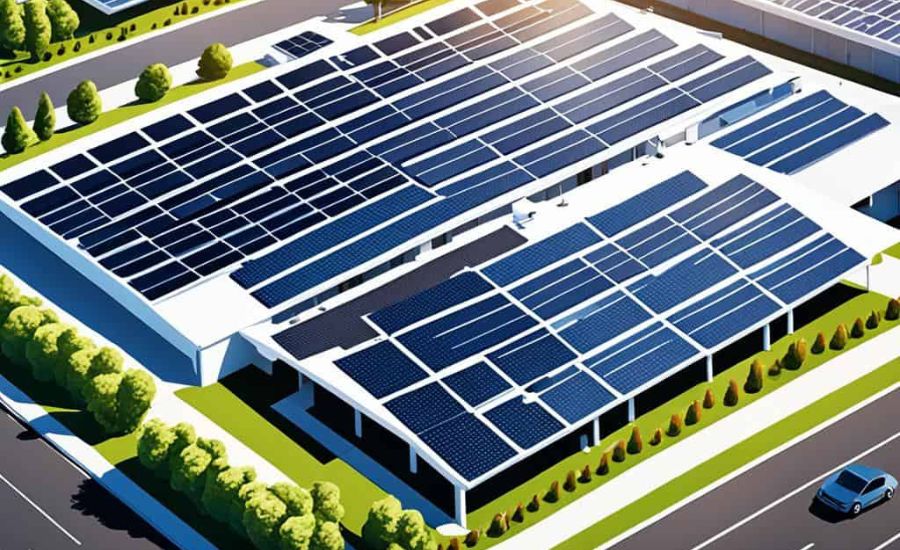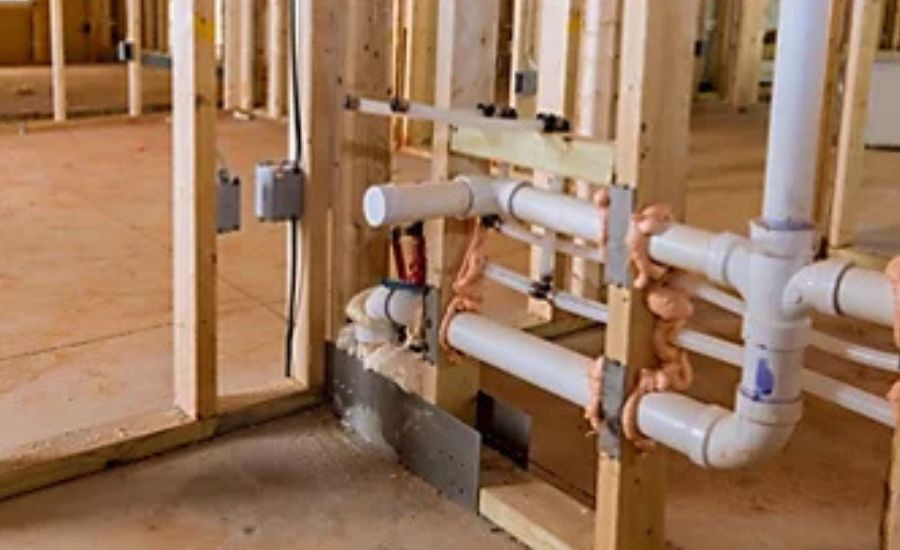More than 70% of companies are switching to renewable energy, especially solar, to save money and operate sustainably. Investing in a solar panel for businesses from Small Energy Bill can significantly reduce operational costs and contribute to a greener planet. This guide simplifies the steps for a smooth switch to solar, covering costs and incentives and helping you invest wisely in your business’s future.
Evaluate Energy Needs
To choose the correct size for a commercial solar system, check your current and future power usage. Consider your peak energy times, possible energy-saving changes, and if you plan to expand your business. This ensures your solar system saves you money and reliably powers your business.
Assess Current Energy Consumption
Start by checking your past year’s energy bills to understand your usage. Notice when you use the most energy, like certain seasons or times of the day. Then, think about getting an energy audit. It’ll show where you’re wasting energy and how to save money and be more efficient.
Determine Future Energy Goals
Setting goals is crucial. As you plan your business’s growth, focus on lowering energy costs and shrinking your carbon footprint. Keep in mind that expanding means using more energy. Ensure your goals match your company’s growth and eco-friendly plans, including solar power as a long-term solution.
Analyze Site Suitability
Before getting solar panels, ensure your roof is in good shape and has enough room. It’s important to see how much sun you get and if anything, like trees or buildings, blocks it. Also, check the local rules because some places have laws that might impact your solar plans.
Cost Breakdown
When budgeting for commercial solar power, factor in initial costs like solar panels and inverters, plus ongoing costs for maintenance and insurance. Don’t forget, that tax breaks, rebates, and lower electric bills can help save money, important for financial planning.
Equipment Expenses
After determining your energy needs, compare solar panel prices and warranties. High-quality panels cost more but are more durable. Choosing the right inverter is key for system efficiency since their quality differs. Consider getting monitoring systems to track energy usage and quickly address issues, although they add to the cost.
Installation Charges
Getting quotes from different installers lets you compare labor costs easily. Prices can vary greatly depending on the job’s complexity or your roof’s design. Sometimes, you might need extra stuff like scaffolding, which can increase the price. Remember to include these extra costs in your budget.
Permitting and Inspection Fees
Permitting rules and their costs differ by area and should be in your budget. Inspection fees are also key expenses. Delays in getting permits can affect your project’s schedule, so always plan for possible hold-ups.
Maintenance and Monitoring Costs
Keep your solar system clean and maintained to ensure its long-term success. Budget for maintenance and repairs. Hiring professionals to check on your system can be helpful, but it costs more. Always save money for future repairs or parts to keep your system going strong.
Select a Solar Installer
Choosing the right commercial solar installer is key. Go for those skilled in big projects for better results. Pick firms that manage everything from design to upkeep for dependability. Ensure they’re certified and insured to safeguard your investment and assure quality.
Research Installer Credentials
Before choosing a solar panel installer, ensure they have the right certifications and experience with commercial projects like yours. Also, check if they’re licensed and insured to keep you safe during installation.
Compare Installation Proposals
When you get proposals, check them well. Look for a clear plan and timelines to know what you’re getting. Compare prices and payment plans from different installers. The cheapest might not be the best, so look at material quality and warranties. These are key to your solar project’s success.
Check References and Reviews
Talking to past customers helps you understand their experience with the installation and the support they received after. Also, checking online reviews gives insight into the service’s reliability and quality, helping you make a confident decision.
Financing and Incentives
Commercial solar financing helps businesses start using renewable energy with low initial costs. Government tax credits and grants save extra money, increasing profits. Also, with power purchase agreements (PPAs), businesses can get solar energy with no upfront costs, just a fixed rate.
Explore Financing Options
Businesses exploring solar projects can finance them with loans, leases, or PPAs. With loans, businesses can own their systems and might get tax benefits. Leases and PPAs offer easier maintenance but could be pricier over time. It’s crucial to weigh the immediate costs against long-term financing expenses.
Understand Tax Benefits
Exploring federal and state tax credits is crucial for businesses considering solar installations, as it can significantly reduce initial costs. Consulting a tax expert is beneficial to maximize these savings and make the project more affordable. Staying updated on tax incentives is essential for accurate budget planning.
Investigate Available Incentives
Utility rebates and incentives lower the cost of commercial solar projects. Local government grants for renewable energy also help make these projects more doable. These benefits make solar power a more appealing investment for businesses.
Grab Your Commercial Solar Panels For Your Business!
To cut costs and be eco-friendly, budget for commercial solar power. Know your energy needs, pick a good installer, and use finance options and incentives. This lowers carbon emissions and saves money in the long run. It moves you towards energy independence and benefits the earth. Choose options that match your business values and budget. Start by finding a trusted solar installer to switch to green energy. Your business will save money and help the environment. Let’s work towards a greener future together.
Read Next: outlookblogs





